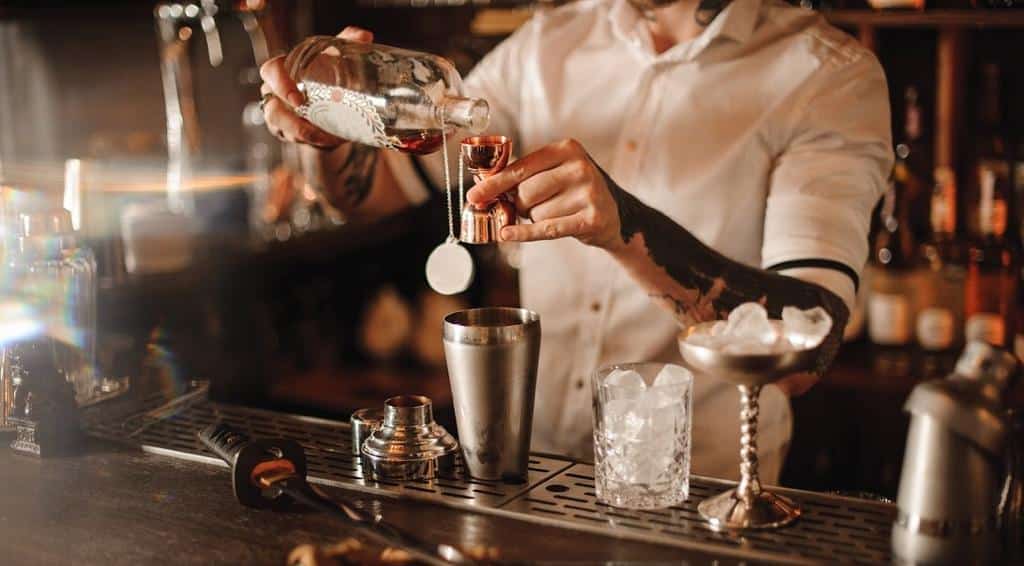Career Advantages of Holding an Alcohol Personal Licence
- Posted by my-licence
- Categories Blog «My-Licence»
- Date June 22, 2024
- Comments 0 comment

Introduction
In the hospitality and retail industries, holding an Alcohol Personal Licence can significantly enhance your career prospects. This certification, legally required to sell or authorize the sale of alcohol in the UK, opens up a range of job opportunities, boosts your earning potential, and provides essential knowledge for managing licensed premises.
✅Benefits of Holding an Alcohol Personal Licence
1. Increased Employability
Holding an Alcohol Personal Licence sets you apart from other candidates in the job market. Many employers prefer or require candidates to have this certification, as it demonstrates a commitment to the industry and a comprehensive understanding of alcohol laws and regulations.
2. Career Advancement
With an Alcohol Personal Licence, you are qualified to take on supervisory and managerial roles within licensed premises. This opens up opportunities for promotions and higher-level positions, such as bar manager, pub landlord, or restaurant supervisor.
3. Legal Compliance
Understanding the legal responsibilities associated with selling alcohol is important. The licence ensures you are well understand in the Licensing Act 2003, which helps prevent legal issues and promotes a safe and compliant environment for both staff and customers.
4. Enhanced Knowledge and Skills
The training involved in obtaining an Alcohol Personal Licence covers a wide range of topics, including responsible alcohol retailing, dealing with difficult customers, and understanding the effects of alcohol. This knowledge not only benefits your career but also contributes to the overall safety and well-being of the community.
5. Flexibility and Mobility
An Alcohol Personal Licence is valid throughout England and Wales, allowing you to work in various locations without needing to requalify. This flexibility is particularly beneficial if you plan to move or seek opportunities in different regions.
✅Job Prospects for Licence Holders
The demand for qualified individuals to manage licensed premises is consistently high. Here are some career paths where an Alcohol Personal Licence can be particularly advantageous:
1. Bar and Pub Management
Licensed bars and pubs require knowledgeable managers to oversee daily operations, manage staff, and ensure compliance with alcohol laws. An Alcohol Personal Licence is often a prerequisite for these roles.
2. Restaurant Management
Restaurants that serve alcohol need managers who understand licensing regulations. This qualification enhances your ability to manage a restaurant effectively, ensuring both legal compliance and customer satisfaction.
3. Retail Management
Supermarkets and convenience stores that sell alcohol also need staff with an Alcohol Personal Licence. This role involves supervising alcohol sales, training staff, and ensuring compliance with licensing laws.
4. Event Management
Events that involve the sale of alcohol, such as festivals, weddings, and corporate events, require licensed individuals to manage alcohol distribution. This certification can open doors to exciting opportunities in the event management industry.
5. Hospitality Training
With your expertise, you can also move into training roles, educating others on responsible alcohol retailing and compliance with licensing laws.
✅Cost of Obtaining an Alcohol Personal Licence
The cost of obtaining an Alcohol Personal Licence varies depending on the provider and the format of the training course. Here is a breakdown of the typical costs involved:
1. Training Course Fees
Training courses can range from £100 to £200.
These courses, which are often available online or in-person, cover essential topics such as the responsibilities of a personal licence holder, the Licensing Act 2003, and the effects of alcohol.
2. Examination Fees
The exam fee is usually included in the cost of the training course. However, if it is not, it may cost around £50.
3. Application Fees
The application fee for the personal licence is approximately £37, payable to your local licensing authority.
4. Additional Costs
Additional costs may include a Disclosure and Barring Service (DBS) check (usually around £25), which is required as part of the application process.
✅Total Estimated Cost
In total, you can expect to spend between £150 and £300 to obtain your Alcohol Personal Licence.
While this may seem like a significant investment, the potential career benefits and increased earning potential make it a worthwhile expenditure.
✅Conclusion
Getting an Alcohol Personal Licence is a paying out career move for anyone involved in the sale and management of alcohol.
The benefits, including increased employability, career advancement, and enhanced knowledge, far outweigh the costs.
With a growing demand for licensed professionals in various sectors, this qualification gives your job prospects the skills and knowledge necessary for a successful career in the hospitality and retail industries.
Invest in your future by getting an Alcohol Personal Licence and unlock an opportunities in the dynamic and rewarding field of alcohol retail and management.
Previous post
Getting Started with Construction CSCS Green Card Training: Tips and Benefits
You may also like
SIA Licence Renewal and Refresher Qualifications: What to Expect in 2025
If your SIA Door Supervision Licence is set to expire in 2025, it’s time to start planning for renewal. Unlike some processes, your licence will not renew automatically. To continue working legally after the expiry date, you must renew it …
Everything You Need to Know About Getting a PCO Licence
If you’re looking to become a professional driver in London, you’ll need a Private Hire Vehicle (PHV) licence, commonly known as a PCO (Public Carriage Office) licence. This licence is essential for anyone who wants to drive minicabs, chauffeur services, …
If you’re considering a career in the UK’s private security industry, you’ve likely come across the term “SIA Licence.” The Security Industry Authority (SIA) is the organization responsible for regulating the private security industry, ensuring that individuals and businesses meet …
